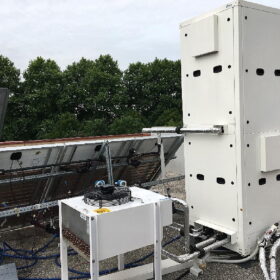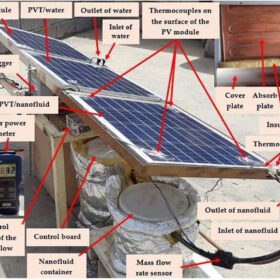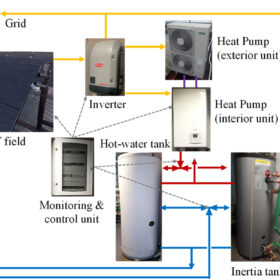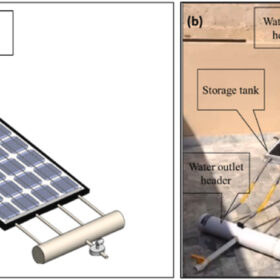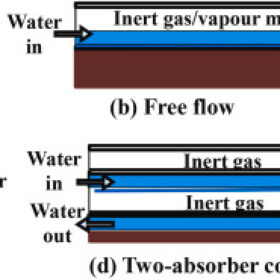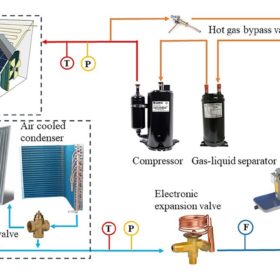Residential heat pump based on finned coil evaporator, PVT collectors
Scientists in Italy have developed a 5 kW direct-expansion solar-assisted heat pump that uses alternatively two different evaporator technologies. The cooling of the PV module unit by CO2 evaporation increases power production by 8%.
Experimental photovoltaic-thermal system based on zirconium oxide nanofluid
An international research group has designed a new photovoltaic-thermal module configuration that uses zirconium oxide as a cooling agent. The system is reportedly more efficient than water-cooled counterparts in reducing its operating temperature.
New system design for PVT systems coupled with air-to-water reversible heat pump
Spanish scientists have proposed a new approach to combine photovoltaic-thermal panels with a reversible air-to-water heat pump in industrial buildings. The system is intended to provide space heating, cooling, domestic hot water, and electricity.
Photovoltaic-thermal solar panel based on water storage tank
A research group from Ireland developed a PVT system consisting of a 170 W photovoltaic panel connected to a water tank placed at the backside of the PV module itself. The PVT module is able to considerably reduce the temperature of the PV unit while producing hot water for residential use.
All photovoltaic-thermal system designs at a glance
An international research team has presented all possible system designs and applications for photovoltaic-thermal (PVT) technology. Their review includes conventional PV-T collectors, air-based systems, liquid-based installations, water-based collectors, refrigerant-based systems, heat-pipe-based technologies, dual air-water systems, building-integrated PVT arrays, and concentrated PVT collectors.
Air conditioning based on air-cooled photovoltaic-thermal system
Chinese scientists have developed a photovoltaic-thermal air conditioning system that uses an air-cooled condenser and a PV/T condenser combined in series. The system reportedly offers better cooling performance under night conditions.
New method to measure solar-powered hydrogen production
Indian researchers have used an “adaptive neuro-fuzzy inference system” to assess the performance of hydrogen production backed by a photovoltaic-thermal collector. They claim it can be applied to other hydrogen production systems.
